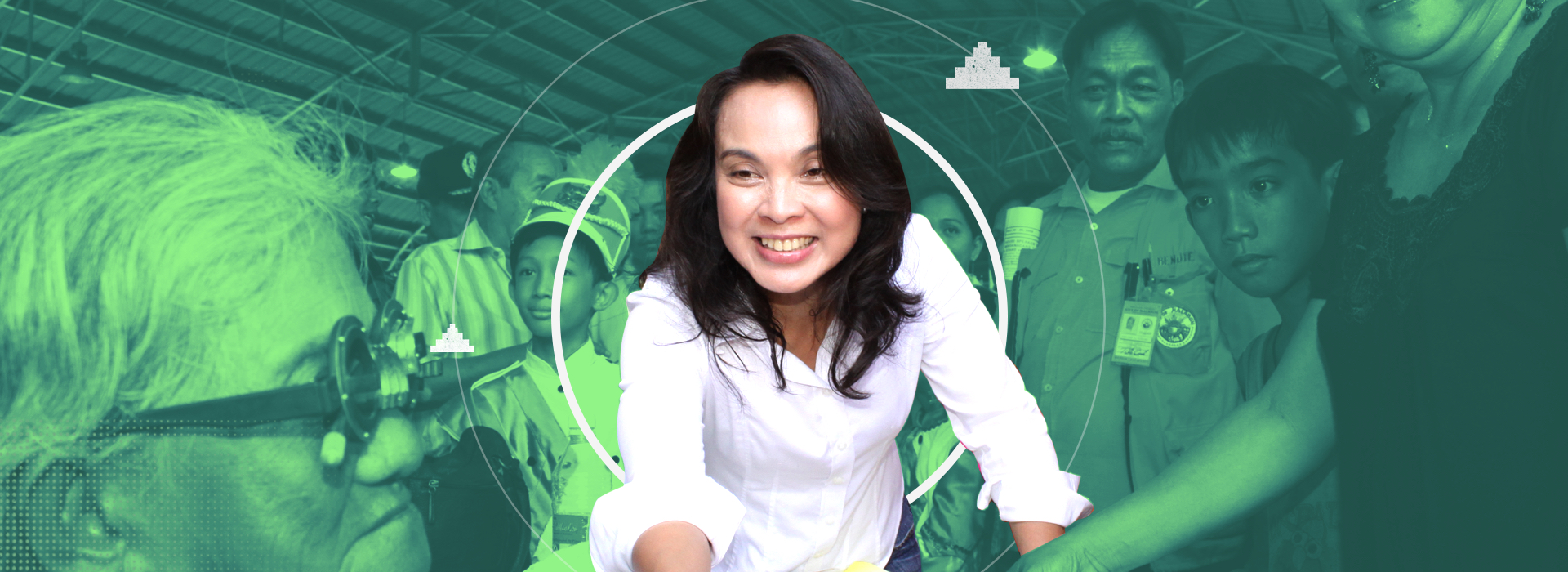
Advocacies
From protecting the environment to efforts for the continued recognition of our national identity, click on each category to learn more about how Loren stands by her advocacies.
Education
Loren believes that literacy is a fundamental human right. As such, she acknowledges the urgent need for a collaborative effort between government and non-government organizations involved in literacy promotion. While accessibility to education and literacy are basic problems inherent to every society, the Philippines is also in need of good quality education. Despite the existence of laws and programs aimed to improve the education system, much still needs to be done to see the effects at the grassroots level.
Her legislative efforts resulted in the passage of the Unified Student Financial Assistance System for Tertiary Education (UniFAST) Act (Republic Act No. 10687) to harmonize and unify existing publicly funded national government programs for Scholarships, Grants-in-Aid, and Student Loans for Tertiary Education to improve their efficiency and the Universal Access to Quality Tertiary Education Act (Republic Act No. 10931) which provided free higher education in State Universities and Colleges (SUCs) and Local Universities and Colleges (LUCs).
Environment, Climate Change Adaptation and Disaster Risk Reduction
A passionate environmentalist, Loren started her campaign for environmental protection and preservation in the 1980s when she became a broadcast journalist.
A renowned champion for the environment, Loren has authored numerous landmark laws for the conservation and protection of our natural resources: the Ecological Solid Waste Management Act, the Clean Air Act, the Climate Change Act, the People’s Survival Fund Act, the Philippine Disaster Risk Reduction and Management Act, Green Jobs Act, the Expanded National Integrated Protected Areas
System Act, among many others.
Her inspiring advocacy for environmental protection has earned her global recognition. She has been recognized as a Global Leader for Tomorrow by the World Economic Forum, UNEP Laureate, and ASEAN Biodiversity Hero. She is also currently the UNDRR Global Champion for Resilience, the UNFCCC National Adaptation Plan Champion, a Commissioner of the Global Commission on Adaptation, the Climate Vulnerable Forum (CVF) Ambassador for Parliaments, the Women Political Leaders Global Ambassador for Disaster Risk Reduction, Climate Change and Environment, and a member of the UNITE Global Parliamentarians Network to End Infectious Diseases.
Employment & Entrepreneurship
Loren recognizes the constitutional mandate that labor is a primary social and economic force; and that the rights of workers must be protected and their welfare be promoted.
One of the first laws that she co-authored was the establishment of the Public Employment Service Office (RA 8759) in all capital towns, key cities and other strategic areas nationwide.
Loren as then Chair of the Economic Affairs Committee sponsored the amendments to the Magna Carta for Micro, Small and Medium Enterprises (RA 9501) to generate employment and economic activities and essentially spur growth in the countryside.
Nationalism
Loren believes that nationalism should be nurtured by the unity of intention and oneness of motive for our country be great again. Therefore, all efforts towards national reconciliation and healing must be pursued, particularly through legislation that seeks to recognize the richness of culture, the uniqueness of our diversity as a people, and those Filipinos who have labored to preserve our culture through the history of forebears.
Loren has long been an advocate of cultural preservation. She has supported Schools of Living Traditions, sponsored the documentation of indigenous knowledge and traditional practices, and organized regional assemblies and the first national indigenous cultural summit that served as avenues for dialogues between the IPs and the various sectors of society.
She has been engaged in efforts to revive the age-old tradition of weaving, creating the country’s first permanent textile gallery, Hibla ng Lahing Filipino at the National Museum; leading the launch of the Hibla Pavilion of Textiles and Weaves of the Philippines, which displayed different weaving traditions; and supporting the National Museum’s Lecture Series on Philippine Traditional Textiles and Indigenous Knowledge. Senator Legarda also initiated the creation of the Museum’s Baybayin Gallery and Manlilikha ng Bayan Gallery.
